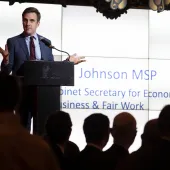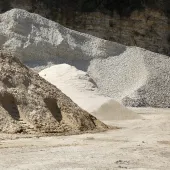EU Phase II investigation into Aggregates Levy

British Aggregates Association concerned about statements contained in HMRC Business Brief 24/13
ON 31 July 2013, the EU Commission announced a Phase II investigation into the Aggregates Levy, the details of which have yet to be made public. However, it is understood the UK Government was given an advance copy of the decision to allow it to check for any issues of confidentiality before publication.
On 16 August HM Revenue & Customs (HMRC) issued Business Brief 24/13, which acknowledged that an investigation had been opened. HMRC has so far refused to issue a copy of the full text of the decision but its Brief shows that all exemptions, with the exception of highway and railway building by-products, demolition materials and recycled aggregates, are to be investigated for state aid.
According to the British Aggregates Association (BAA), Business Brief 24/13 also makes a number of surprising statements.
First, the Brief states that ‘the Commission has not asked the Government to suspend the exemptions’, even though EU law provides that they must. The BAA says that if this is indeed true, then HMRC should have put the Commission’s decision in the public domain to substantiate it. The Association believes it is misleading for HMRC to say that ‘it sees no reason to suspend the exemptions listed’. This, says the BAA, suggests that it is business as usual for exempted businesses, which it most definitely is not.
Secondly, the Brief states that ‘the Government remains confident that the evidence supports its position that there is no aid’. However, the BAA asserts that during recent discussions with the Commission, the Government had yet another opportunity to put forward any such evidence but obviously failed to do so or to convince the Commission. According to the Association, HMRC has now claimed on several occasions to have additional evidence which supports its position but has failed to produce it, making it difficult to understand what the basis for the Government’s ‘confidence’ actually is.
Thirdly, the Brief states that ‘the Commission has made explicit reference to the fact that the levy in its entirety is not in question’. The BAA says this claim does not sit well with state aid law and simply reinforces the point that the Government should disclose what the Commission has actually said.
Fourthly, in the Brief HMRC admits that ‘if any reliefs or exemptions are found to be unlawful state aid there is a possibility that the Commission could require the UK Government to request businesses that have benefitted from those reliefs or exemptions to repay that aid’, but then goes on to state that ‘while businesses that could be affected should take note of this, no further action is required of them at this stage’.
The BAA says it is deeply concerned by what it describes as HMRC’s flagrant disregard for EU state aid law, and by the potential risk posed to those companies who are being encouraged to continue with exemptions that are now subject to investigation.
The Association is, therefore, advising all companies who currently benefit, or have in the past benefitted, from such exemptions to seek appropriate legal advice. It says European law is perfectly clear on the point of state aid which is subsequently deemed to be illegal, in that all companies who have received such aid must be compelled to repay it, irrespective of whether this may cause them to go into liquidation.
According to the BAA, the only safe outcome now for those companies with exemptions – or in the case of Northern Ireland, a partial derogation [since withdrawn] – is for the Aggregates Levy to be declared illegal in the London Court of Appeal in October. This would mean that the remedy, for those companies not in receipt of state aid, would be repayment of levy paid rather than the possibility of exempt companies being put into liquidation.









